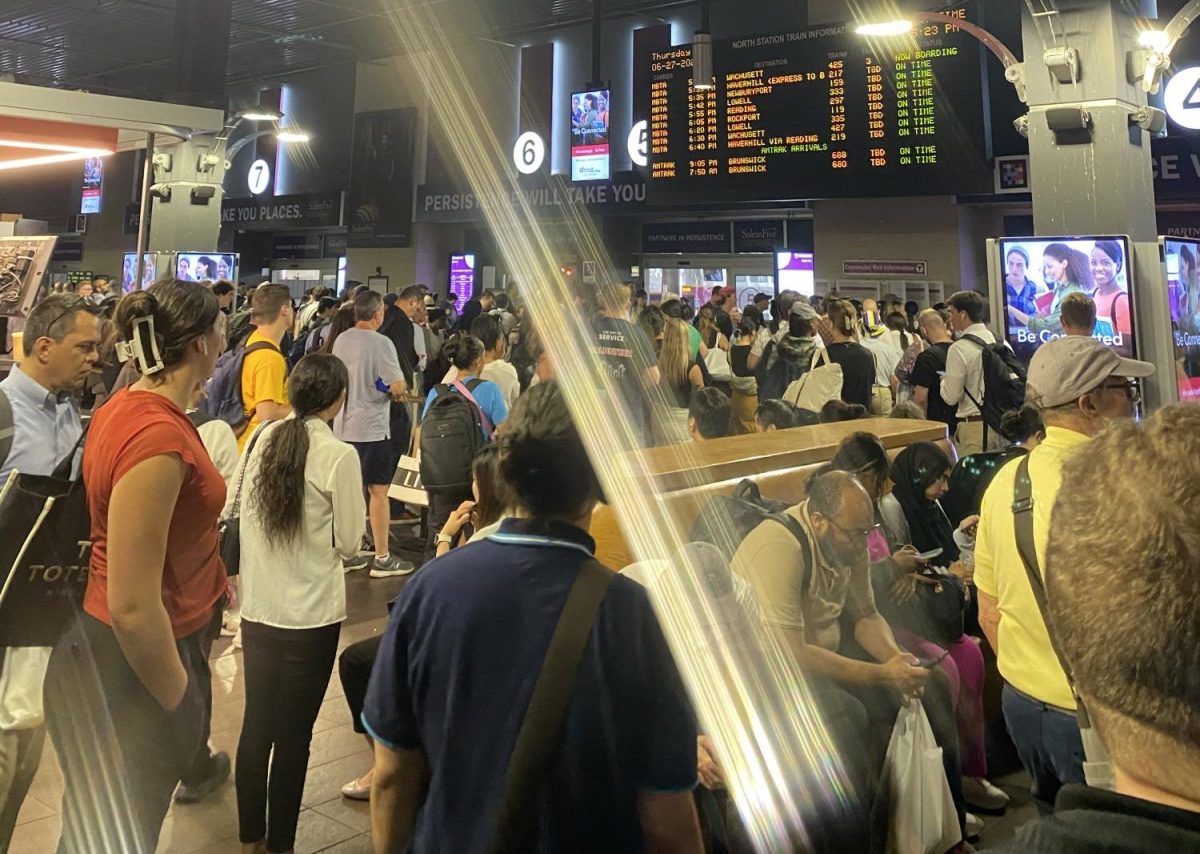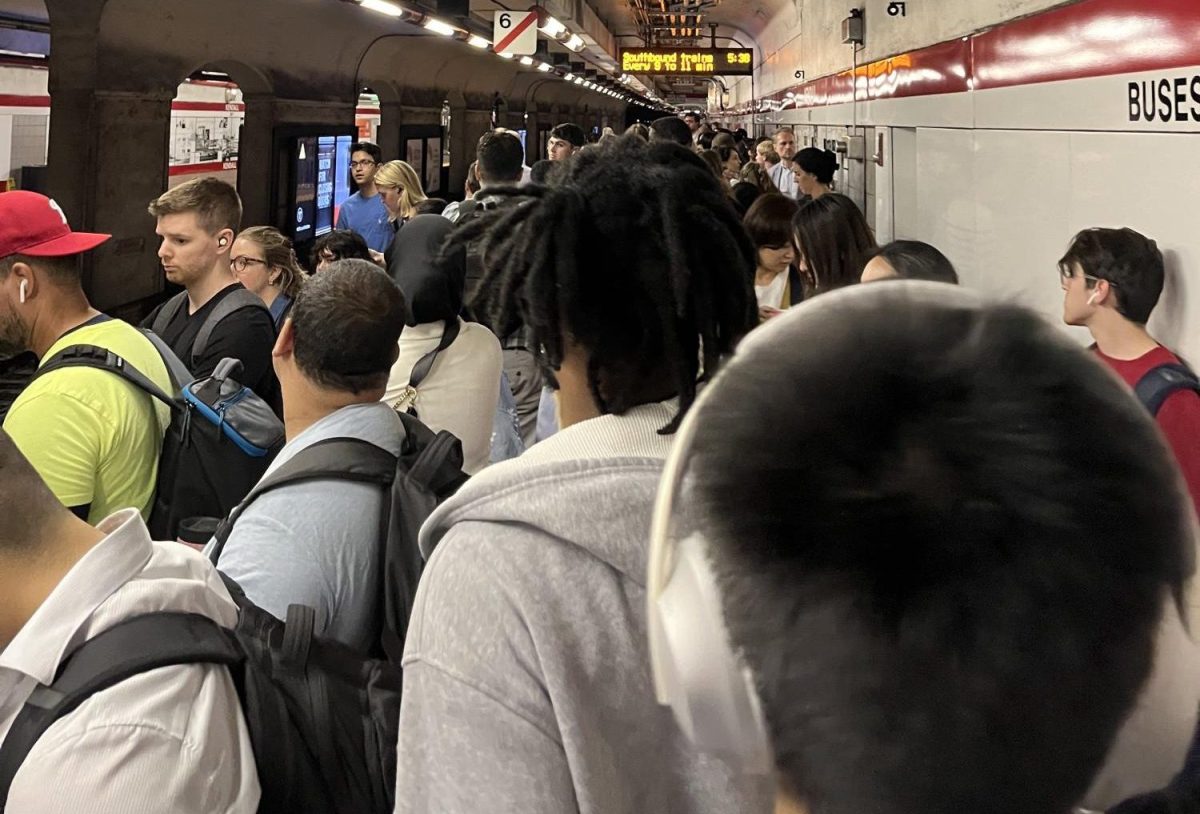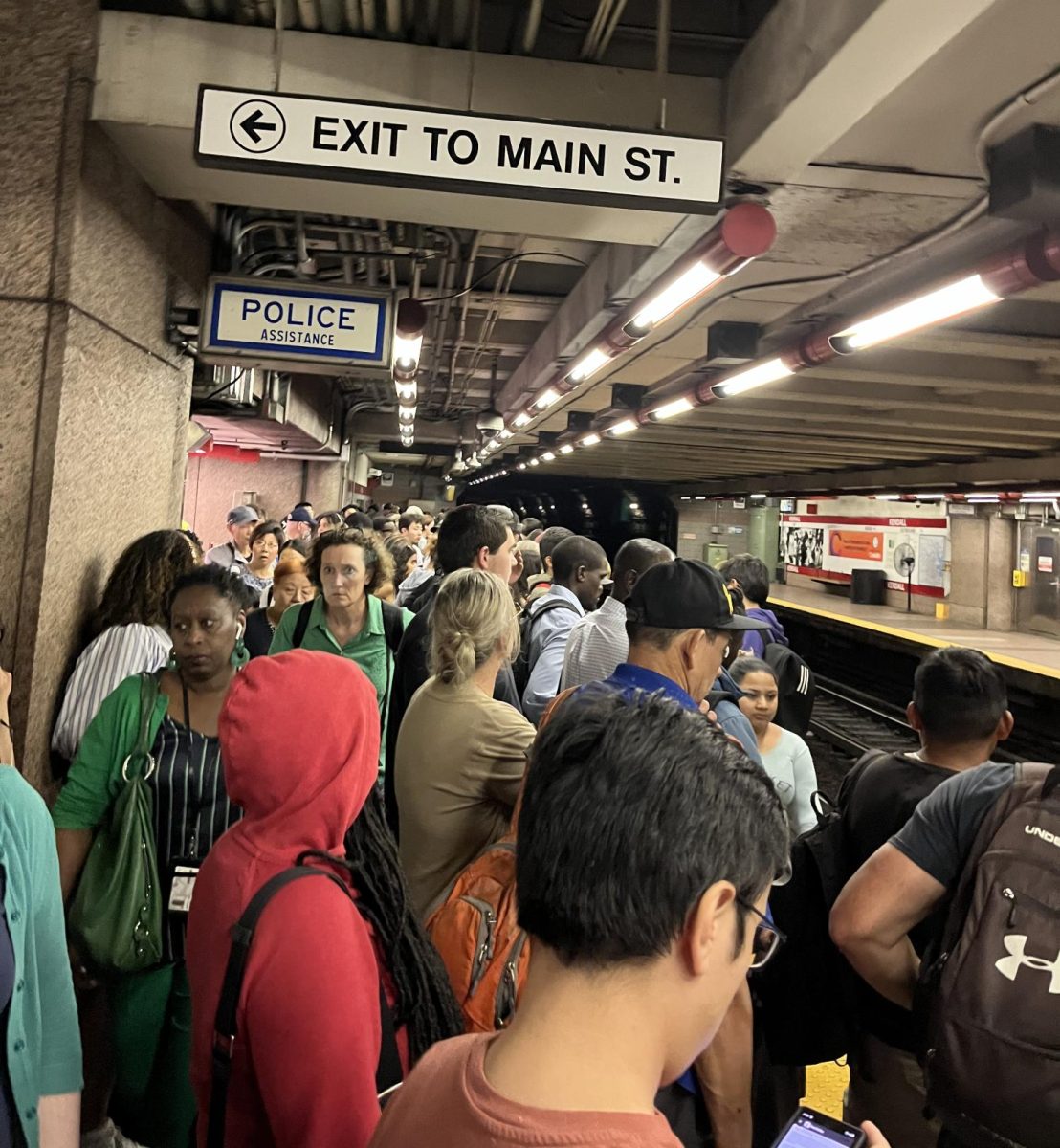Boston, Massachusetts, the birthplace of American freedom. Beantown. Title Town. City of Champions. Bah-stin. Albeit true, it is now known as Transportation Travesty Town.
The Massachusetts Bay Transportation Authority, better known as the MBTA, or simply, the T, has been facing major problems with its services this summer. From replacing rails to train cars undergoing maintenance to derailments, commuters are experiencing unforeseen delays and complications, emphasizing the urgent need for better city-wide transportation.
“I just stopped taking the T altogether,” said Josselin Hernandez, a rising sophomore at Everett High School. “The amount of times I’ve woken up with alerts from my transportation app telling me that the Orange Line isn’t running its usual route is insane.”

In June, the Red Line announced that it would be stopping service between Alewife, Kendall/MIT, and Park Street stations from July 12 to July 28, according to the City of Cambridge website, work on the line will result in multiple closures throughout the year.
Shuttle buses will replace train service throughout the maintenance days but many people say they will be opting for more expensive forms of transportation, such as taxis, Lyfts, or Ubers. Apps such as Moovit, Transit, and ProximiT are effective in calculating routes and giving updates on all forms of public transportation in Boston, including the commuter rail and traffic routes.
“Ubers are expensive, but they are certainly more reliable than whatever is going on with the T right now. It’s a hot mess,” said Josselin, who usually travels for 30 minutes to get to work.
Throughout the summer, the MBTA has been making many changes to its transportation services, leaving many commuters concerned about getting to places they need to be. According to recent MBTA ridership data, the average weekday ridership on buses and subways is more than 1 million passenger trips. However, despite these staggering numbers, the system’s reliability is still an issue.
“I’ve been taking the T to work for years and I’ve never seen something like this,” says Antonio Martinez, a Somerville resident. “It’s something that’s been worked on for too long but never improved in terms of reliability or consistency.
“All maintenance is done on the T as part of its track improvement program to eliminate speed restrictions to improve service, safety, and reliability. Although speed restrictions help ensure the safety of workers and passengers alike, it is one of the many reasons why maintenance is being done. According to the MBTA, with these future improvements, it plans on expanding engineering teams and engaging specialized rail contractors to execute work efficiently.
In an interview with WBUR’s “Radio Boston” in 2023, Boston Mayor Michelle Wu gave notice to the MBTA’s lack of service when it comes to train schedules and repairs. Wu stated that the MBTA is in a very dire place in terms of service, saying that Boston is far from having a system that is barely adequate for the needs of a world-class economic engine and workforce hub.
The MBTA’s own data shows a significant drop in passengers on several key lines, with some services seeing reductions up to 20 percent compared with previous years. The decline in ridership not only shows commuter annoyance, it also poses financial challenges for the MBTA, as lower passenger numbers lead to lower revenue.
“I think it’s [lower revenue] justified,” said Justina Machado, a frequent T passenger. “Its really difficult to get from point A to B and the T does not help at all. People already stress about the rising cost of living, they don’t want to stress about horrible public transportation.”

–July 25, 2024–


